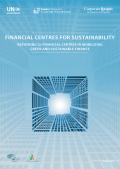
The report Financial Centres for Sustainability: Reviewing G7 Financial Centres in Mobilizing Green and Sustainable Finance has been prepared to explore how financial centres can contribute to the delivery of the Sustainable Development Goals (SDGs) and the Paris Climate Agreement.
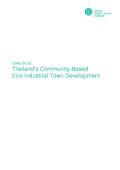
This report Thailand’s Community-Based Eco-Industrial Town Development found some potential lessons learned from Thailand’s Eco Industrial Town program and opportunities for improvement.
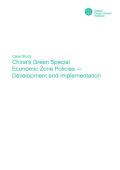
The case study China’s Green Special Economic Zone Policies — Development and Implementation looks at a series of programs that the Chinese government implemented to stimulate green transition of industries and the entire economic value chain.

The case study Greening Industrial Parks — A Case Study on South Korea’s Eco-Industrial Park Program presents the National Eco-Industrial Park (EIP) program, which was launched by the Korean National Cleaner Production Center (KNCPC) in 2003.
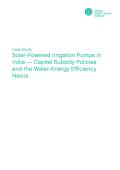
The case study Solar-Powered Irrigation Pumps in India — Capital Subsidy Policies and the Water-Energy Efficiency Nexus looks at India’s National Solar Mission program, under which the central and state governments support farmers not only by providing a capital cost subsidy on solar pump systems, but also by creating an enabling framework on their deployment by actively engaging key stakeholders.
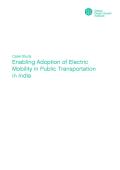
The case study Enabling Adoption of Electric Mobility in Public Transportation in India describes how GGGI has supported the State Government of Himachal Pradesh in developing and implementing its Green Growth Strategy and established a business case for introduction of electric vehicles.
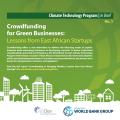
The Climate Technology Program Brief: Crowdfunding for Green Businesses - Lessons from East African Startups tries to better understand crowdfunding’s potential and limitation by interviewing a number of East African entrepreneurs who were early adopters of this new fundraising mechanism.
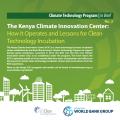
The Climate Technology Program Brief: The Kenya Climate Innovation Center - How it Operates and Lessons for Clean Technology Incubation shares the Kenya Climate Innovation Center’s operating model as it has evolved after four years of operations.

What is the role that connections can play in helping green technology entrepreneurs innovate and scale up in developing countries, so as to inform the design of new public sector programs? The Climate Technology Program Brief: Connecting Green Technology Entrepreneurs - Implications for Public Program Design tries to answer this question.

The Climate Technology Program Brief: Adapting Global Entrepreneurship Acceleration Models to Clean Tech in Developing Countries - The Ghana Climate Innovation Center is showing that a business development model that grew out of Silicon Valley can be applied to clean technology business incubation in developing countries.
